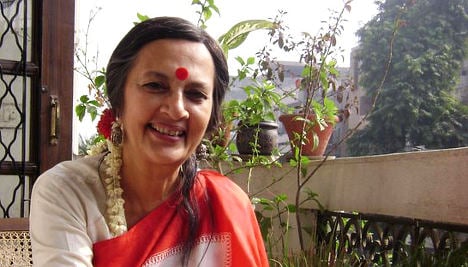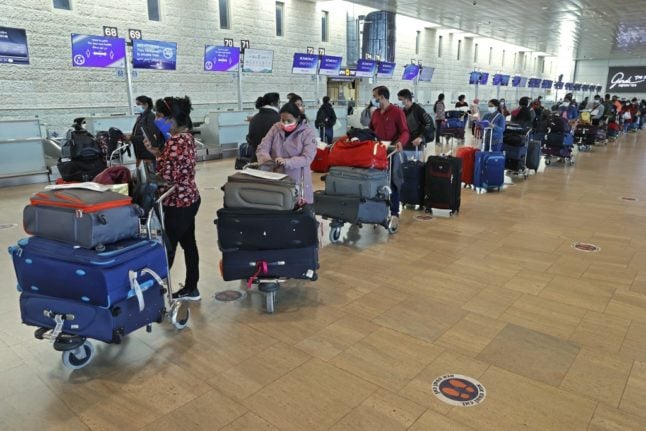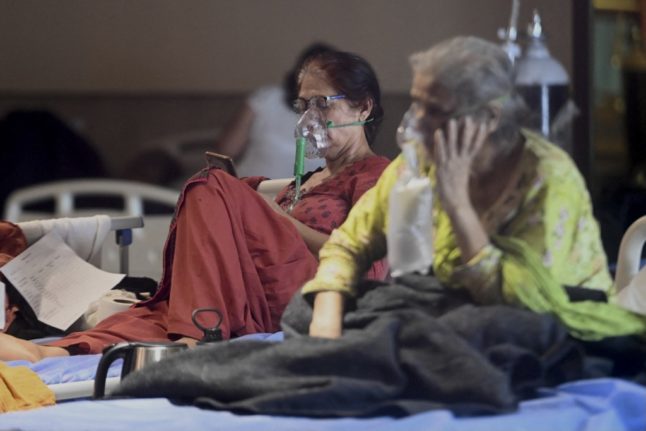Anurup and Sagarika Bhattacharya lost custody of three-year-old Avigyan and one-year-old Aishwarya after Norwegian officials objected to their feeding the children by hand and sharing the same bed, according to press reports.
These are common practices in India, where they are seen as part of the bonding between mother and child.
Indian foreign minister S.M. Krishna told reporters he had urged the Norwegian authorities "to find an amicable and urgent solution to ensure that the children are returned to the biological parents".
Norwegian Foreign Minister Jonas Gahr Støre's office said in a statement that he had spoken with his Indian counterpart Monday and had assured him that Norwegian authorities were "working hard to find a solution that is in the best interests of the children involved".
The Child Welfare Services in the south-western Norwegian town of Stavanger, where the family lives, would not comment on the grounds for removing the children from their home, insisting the information was confidential.
Gunnar Toresen, who heads the local branch of the agency, strongly denied that the "case in any way is based on cultural prejudice or misinterpretation".
He said in a statement that "the Child Welfare Service has a responsibility to intervene if measures in the home are not sufficient to meet a child's needs".
"Examples are when a child is mistreated or subjected to other serious abuses at home, or when there is every probability that the child's health or development may be seriously harmed because the parents are incapable of taking adequate responsibility for their child," he said.
The parents are now fighting a legal battle for their children and have already lost their case in a lower court.
According to Toresen, the parents' explanation for why their children had been removed did not figure in the ruling of the County Committee, a family court.
Krishna said he believed that "given the children's young age, removal from the care of natural parents and to be placed in foster care till they turn 18… is an extreme step which should normally be taken as a last resort".
"It's like a nightmare," Sagarika Bhattacharya, the mother, told India's NDTV news channel. "We only hope that the Indian government will intervene and bring back our children to our laps."
Krishna said he expected to reach a solution which would be acceptable to the children's families and to the Norwegian court.
In a statement released at the weekend, India said the children were being deprived of the "benefits of being brought up in their own ethnic, religious, cultural and linguistic milieu" and must be reunited with their parents.
The case has attracted considerable attention in India in recent days, with many questioning the decision of Norwegian authorities.
Brinda Karat, senior member of the Communist Party of India (Marxist) attacked Norway's child welfare services.
"The question is what gives the Norwegian authorities the right, whether morally or even (under) international rules, to take away these babies from their parents?" she told NDTV.




 Please whitelist us to continue reading.
Please whitelist us to continue reading.
Member comments